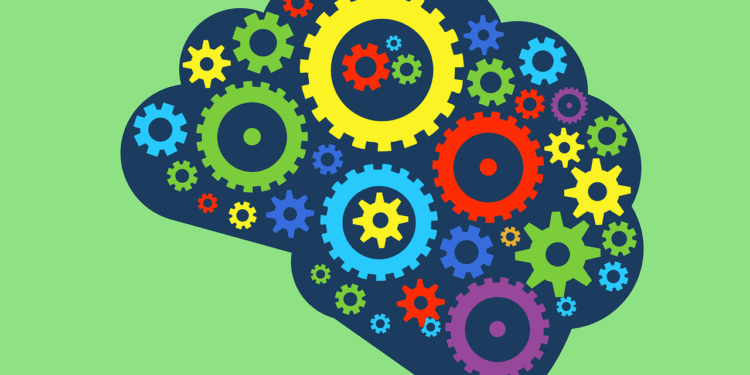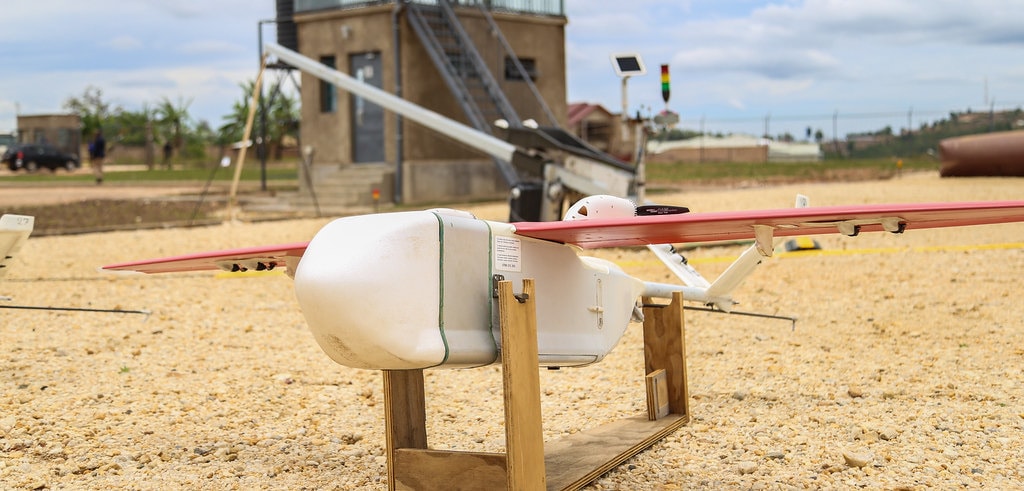We are currently in the middle of Autism Acceptance Week, which centres around World Autism Acceptance Day, April 2. As Autism is often stigmatised and misrepresented, this week is an important opportunity to educate ourselves about autism, emphasise the need for more support in educational environments, and consider how we can create a society that is more accepting towards autistic individuals – one that is the most accommodating.
In February 2021 the Office for National Statistics released a report which found that autistic people are more likely to be unemployed than any other disabled group, in the UK. The report showed that only 21.7% of autistic people were in employment when the study was done.
The data clearly emphasises that not enough is being done to create an environment where autistic individuals can comfortably work and learn.
I recently spoke to a student at Bristol University who, since being diagnosed with autism in 2021, has been entitled to support, such as transcriptions of her lectures. Yet she expressed to me that she felt that overall, the support that the University had to offer her was unreliable.
She told me that the main problem is “a lack of funding from the government combined with the current social understanding of autism.”
She expanded on this, explaining that:
‘‘I just don’t think enough people know a lot about what autism is. People often take stereotypes from the media, and it is also often the case that physical disabilities are seen as a lot more important than neurological disorders, so they [the university] just throw these things at us, that could maybe be really helpful in ten years but still need a lot of work.’’
She continued to explain that although her teachers are helpful one-on-one, ‘‘if you’re applying for a long term thing like my transcriptions, then it becomes very difficult and very unreliable.’’
Overall, she emphasised that her teachers are trying as hard as they can, but that there is only so much they can do to help her because ‘‘the government is underfunding disability support in higher education.’’
However, hopefully this year, the situation will finally begin to improve, as the government gains more awareness of the support that autistic students in higher education require, so they can graduate university and have a greater chance of sustained employment.
In December 2022, the UK government announced that this year, a new Disability Action Plan will be consulted on and published.
When discussing the need for a plan, Minister for Disabled People, Health and Work, Tom Pursglove MP, said:
“Over one in five people in the UK are disabled. It’s vital we continue to take concerted action across government to improve disabled people’s lives. I’ll be bringing forward our Disability Action Plan in 2023 to build on government reform of the disability agenda, underlining our global leadership on disability rights and leading the way in areas such as assistive tech and accessibility. It was inspiring to visit the GDI’s new research lab where this type of innovation is in action – unlocking opportunities so that more disabled people can reach their potential.”
In an area such as politics where many disabled people feel misrepresented and neglected, due to its inaccessibility, it is imperative that this be the sphere where change is enacted most urgently. When a comparison is drawn between multiple countries, it becomes clear what more each country can do to support their adult citizens with developmental disorders such as autism.
Related Articles: ‘Leave No One Behind’ — Commitment to Safeguard Autistic Girls in the UK | Making A Movie Too Realistic?
In many European countries, adults with autism are often neglected by the government, and struggle to find and maintain employment due to a lack of support. An example of this is in Germany, which has a good support system in place for autistic children. According to this study, conducted in 2021 by Elsevier, it was discovered that the majority of children and adolescents in Germany with Autism spectrum disorder (ASD) received special educational support (SES).
However, there is a noticeable neglect of autistic adults in Germany. According to this 2021 study led by Tolou Maslahati, ‘‘adults with ASD are poorly integrated in the German labor market’’ and there are ‘‘high rates of unemployment’’ amongst adults with autism living in Germany.
In countries such as Georgia, people with ASD have been struggling for years to access support, due to the inaccessibility of therapeutic services across the country, and the lack of necessary tools. In 2018, the government announced the first large-scale care centre for autistic children and adults, located in Tbilisi, Georgia’s capital, which would house 230 people with autism.
Yet difficulties amongst the Georgian population still continued as many individuals needing support for ASD had to travel to Tbilisi in order to access it.
However, progress is being made. Over the last five years, Caritas Czech Republic, together with Ilia State University’s Child Development Institute and the Georgian Academy of Childhood Disability, have executed a project with a budget of just over a quarter of a million Euros, to expand and improve the services in Georgia for people with ASD.
In addition to this, the project involved a professional strengthening of specialists working with autistic individuals in Georgia, and throughout the duration of the project, hundreds of doctors were trained to identify the risk of ASD in children. A positive result of this is that many parents do not have to travel from all over the country to Tbilisi to get their children diagnosed anymore.
In 2021, Tamila Barkalaia, the Deputy Minister of Health of Georgia, spoke about the long-term benefits of Carita Czech Republic’s work. She emphasised that through the project, Georgia accumulated more knowledge about autism and people living with autism, and now has trained service providers and a national standard for the provision of services to children with ASD.
She stated: “This is a resource that a country must have in order to provide children with ASD with quality services.”
Although great progress is being made across Europe in regards to care and support for autistic children, it remains true that adults with autism are still mostly neglected.
For example, although some UK charities offer grants for autistic children and their families, such as Autism Aware UK and Caudwell Children, in general, there is a lack of support for autistic adults who are trying to work through higher education, or find and maintain a job.
Most of the work to provide autistic individuals with support still seems to be executed by non-profit organisations, and we can infer a lack of government input here.
However, it is clear that more can be done to help autistic individuals when we consider the work that Australia, for example, has done to create a more accessible system.
The country’s National Disability Insurance Scheme (NDIS) provides funding, support workers, and programs to support people with autism through education, and to assist them in finding or maintaining employment. Through this scheme, autistic individuals receive an average of $32,800 per year.
The Australian population has a rate of only 413 autistic individuals per 100,000 people, compared to the 700 autistic individuals per 100,000 people in the UK. Since there is a higher percentage of people with autism living in the UK, forming a group of at least 470,000, shouldn’t the UK government be doing more to support them?
Although Europe as a whole still has a long way to catch up in terms of ASD support, over the past year, the UK government has begun to take initiative to provide autistic individuals with more help.
In August 2022, the Local Supported Employment initiative was launched, for example. Minister for Disabled People, Health and Work Chloe Smith MP said:
“Disabled people deserve the same opportunities to start, stay and succeed in employment as everyone else. We know that those with autism and learning disabilities can face particular barriers to employment, which is why we’re spending £7.6m through the Local Supported Employment initiative. We hope to break down those barriers and use local networks to help more disabled people reach their full potential.”
Outside of Europe, there are still many places where autism is stigmatised to the point where autistic individuals feel they have to hide away. For example, an article by Spectrum revealed that in 2017, there were many cases in Ethiopia where autistic children were locked away or tied up. Parents felt the need to hide their children, fearing the pervasive stigma in many parts of Africa where disabilities were viewed as “the sign of a curse or possession by a spirit.”
This stigma is rooted in a lack of education about autism. Ethiopia has roughly 100 million inhabitants, and yet within this population there are only 60 psychiatrists, and only two public health clinics which provide child mental health services. Another article from 2019 emphasised that the lack of support for autistic individuals in Ethiopia does not seem to be an issue for concerned government officials and professionals.
In general, sub-Saharan Africa is concerningly behind the rest of the world in regards to knowledge about developmental and neurological disorders, and action to support individuals with these disorders. In 2015, there were about 50 child and adolescent psychiatrists for the one billion or so inhabitants of sub-Saharan Africa.
The suffering that individuals with ASD have to undergo in these areas is unacceptable, and the data clearly demonstrates that nationwide support for autism relies primarily on funding, and cannot be achieved without it. However, the stigma surrounding autism can be just as harmful to individuals with ASD, and therefore it is important that the world continues to be educated about what autism really is, and what it really looks like.
Globally, autistic individuals need more consistent and more reliable support throughout higher education, and continuous support throughout adulthood. As it is Autism Acceptance Week, I would suggest to anyone reading this to take the time to learn more about autism, looking beyond the stereotypes presented in the media.
Hopefully, as more awareness is raised about the lack of support and the threat to quality of life that autistic individuals have to juggle everyday, we can help to create a world where everyone is accepted and accommodated for; a world with equal employment opportunities.
In addition to this, my hope is that once people become more educated about autism, the stigma around it will fade, and as a global community we will become more accepting of diversity. No matter who we are or how we think, we can all bring something beautiful and valuable to the world.
Editor’s Note: The opinions expressed here by the authors are their own, not those of Impakter.com — In the Featured Photo: Brain with colourful gears. Featured Photo Credit: Pixabay














